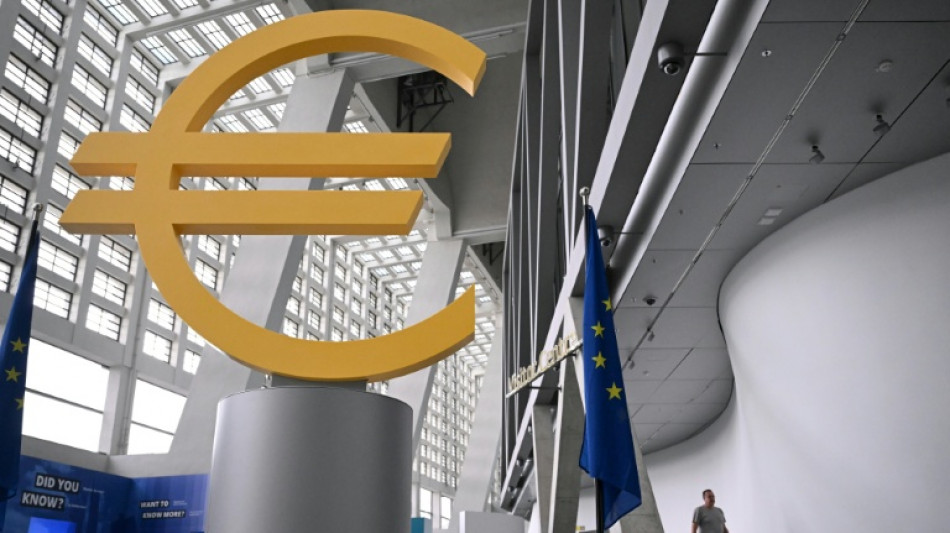
With inflation under control, ECB to hold rates steady again

The European Central Bank is expected to keep interest rates unchanged for its third straight meeting Thursday with inflation hovering around its target and the eurozone economy holding up.
Following a year-long series of cuts, the ECB has kept its key deposit rate steady at two percent since July.
Inflation has settled around the central bank's two-percent target and Europe has weathered US President Donald Trump's tariff onslaught better than initially feared, with officials signalling they are not keen to cut more for now.
Jose Luis Escriva, Spain's central bank chief and a member of the ECB's rate-setting governing council, told El Diario newspaper in a weekend interview that the "current level of interest rates is appropriate".
ECB officials are gathering in Florence, Italy, on one of their regular tours away from the central bank's Frankfurt headquarters, with the rate call due to be published at 1315 GMT.
But with the decision seemingly a foregone conclusion, all eyes will be on President Christine Lagarde's press conference afterwards and any hints on the future trajectory of rates.
In contrast to the ECB, the US Federal Reserve has started reducing borrowing costs again, and on Wednesday cut rates for its second straight meeting -- by a quarter point -- as concerns grow about the cooling labour market.
- Debate on future cuts -
The ECB is seen as unlikely to follow suit for now, however, particularly given signs that the long-struggling eurozone economy is on a better footing.
The ECB raised its eurozone growth forecast for this year at its last meeting in September, easing any immediate pressure for a rate cut.
But the central bank for the 20 countries that use the euro faces headwinds, from the French political crisis that has pushed up borrowing costs in the eurozone's second-biggest economy to the risk of a further flare-up in trade tensions.
Such concerns are firing debate about whether the ECB may need to make more cuts later.
Rate-setters appear "split with regard to the balance of risks to inflation and, therefore, on the need for an 'insurance' cut over the coming few months", UniCredit analysts said this week.
Lithuanian governing council member Gediminas Simkus weighed in on the debate in September, calling for a cut at the ECB's next meeting in December.
"From a risk-management perspective, it's better to cut than not," he said in an interview with Bloomberg, warning of a strong euro and slowing wage growth dragging inflation down.
Andrew Kenningham, an economist at Capital Economics, told AFP he expected the ECB to cut rates further in 2026 as inflation and wage growth cool.
"There are now very few reasons to fear a resurgence of inflation -- the economy remains so weak, the labour market is loosening," he said.
S.M.Riley--TNT